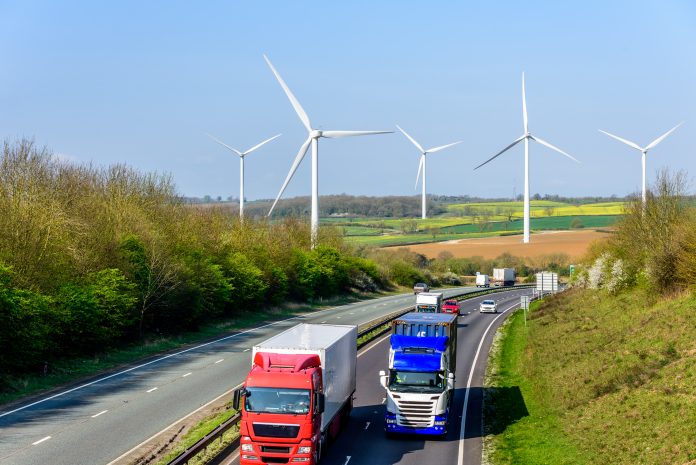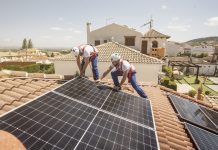Megan Warrender of Open Access Government explores Department for Business, Energy, and Industrial Strategy, led by Rt Hon Alok Sharma MP’s, priorities for energy policy in response to COVID-19
The Rt Hon Alok Sharma was appointed Secretary of State for Business, Energy and Industrial Strategy in February 2020 and has responsibility for business, industrial strategy, science, innovation, and energy. Since assuming his role, COVID-19 has broken out across the world, and Sharma’s department has been taking initiatives to protect vulnerable people throughout COVID-19, ensuring that vulnerable customers remain supplied with energy.
The UK Government agreed on emergency measures with all UK domestic energy suppliers in March 2020. Speaking on this, Sharma stated: “The government has committed to do whatever it takes to get our nation through the impacts of this coronavirus pandemic. Today those most in need can rest assured that a secure supply of energy will continue to flow into their homes during this difficult time.”1
Customer protection
The government and energy industry agreed to first and foremost, protect customers who are already in need, and to also identify those whose circumstances have changed as a result of the COVID-19 pandemic. These measures include ensuring that prepayment and pay-as-you-go customers remain supplied with energy through challenging times and supporting all customers in financial distress.2 In a measure that is said to benefit over 4 million customers, those with prepayment meters now have different options to keep them supplied with energy, such as the ability to “nominate a third party for credit top-ups, have a discretionary fund added to their credit, or be sent a pre-loaded top-up card so that their supply is not interrupted.”3
Wider measures taken include direct support from UK domestic energy suppliers for any customer experiencing financial difficulties as a result of COVID-19.
Customers will be able to talk to their supplier about debt repayments, and bill payments will be reassessed, reduced or paused and the disconnection of credit meters has been “completely suspended.”4
Decarbonise the economy
Beyond the COVID-19 measures in place to protect vulnerable people, the government also is taking measures to decarbonise the UK economy, end the UK’s contribution to climate change and make the UK a world leader in renewable energy.
According to Sharma, supporting UK based low carbon industries is central to the Department for Business, Energy, and Industrial Strategy’s target to reach net-zero by 2050. Renewable electricity generation has quadrupled since 2010, with low-carbon electricity providing more than 50% of the UK’s total energy needs. Sharma says his Department is committed to “putting significant funds behind the renewables sector and … are committed to increasing our research and development spending to 2.4% of GDP by 2027.” As well as this, in an initiative to research other low- carbon options, the Department is investing up to £121 million supporting a range of projects to explore and develop the potential of low-carbon hydrogen, which could play a key role in the net-zero by 2050 efforts.5
Decarbonising transport and reducing the industry’s dependence on fossil fuels through initiatives such as increasing research and development, as well as the use of electric vehicles is key to limiting the UK’s contribution to climate change.
Electric vehicles
It is clear that the government is committed to investing in the automotive industry, continuing research and development into electric cars and funding further research into sustainable transport. On the topic, Sharma stated: “within days of taking office I spoke to our major automotive manufacturers, and I have had meetings with a number of them… We want to encourage electric vehicles, and we are also committed to securing investment for a UK gigafactory. Last year we announced up to £1 billion of new money to support R&D and supply chains for electric vehicles.”6
“Since assuming his role, COVID-19 has broken out across the world, and Sharma’s department has been taking initiatives to protect vulnerable people throughout COVID-19, ensuring that vulnerable customers remain supplied with energy. The UK government agreed on emergency measures with all UK domestic energy suppliers in March 2020. Speaking on this, Sharma stated: “The government has committed to do whatever it takes to get our nation through the impacts of this coronavirus pandemic. Today those most in need can rest assured that a secure supply of energy will continue to flow into their homes during this difficult time.”
Climate change
As part of this effort to tackle climate change, the government launched a consultation to make journeys easier, smarter and greener through new technology as part of the Future of Transport regulatory review.7 This review will consider areas such as the use of micro mobility vehicles (such as electric scooters) on the road as well as their user requirements, and rules around flexible bus services. Along with the review, £90 million in funding will lead to trials of new transport innovation in 3 new ‘future transport zones.’ The zones will provide real-world testing for experts, allowing them to work with a range of local bodies such as councils, hospitals, airports, and universities to test innovative ways to transport people and goods.8
Furthermore, on the 4th March 2020, the government backed a cleaner planes, ships and automobiles initiative helping to electrify the transport industry, putting £36.7 million into designing, testing and manufacturing electric machines. Of this money, £30 million will be used to create 4 new, cutting-edge centres of excellence – based in Newport, Nottingham, Strathclyde and Sunderland – which will bring together climate change pioneers to research and develop green electric machines including planes, ships and cars.9 The remainder of the £36.7 million budget will be used to ensure that large automotive manufacturers can access the parts and components they need to develop electric machines with ease. This initiative will include British businesses such as GNK, Jaguar Land Rover and Rolls-Royce. On this project, Transport Minister, Rachel Mclean has said: “By investing in world-leading science and engineering institutions, we are creating a modern transport system, bringing communities closer together while reducing the UK’s contribution to climate change.”10
References
1 https://www.gov.uk/government/news/government-agrees-measures-with-energy-industry-to-support-vulnerable-people-through-covid-19
2 https://www.gov.uk/government/news/government-agrees-measures-with-energy-industry-to-support-vulnerable-people-through-covid-19
3 https://www.gov.uk/government/news/government-agrees-measures-with-energy-industry-to-support-vulnerable-people-through-covid-19
4 https://www.gov.uk/government/news/government-agrees-measures-with-energy-industry-to-support-vulnerable-people-through-covid-19
5 https://www.aloksharma.co.uk/content/business-energy-and-industrial-strategy-questions
6 https://www.aloksharma.co.uk/content/business-energy-and-industrial-strategy-questions
7 https://www.gov.uk/government/news/new-transport-tech-to-be-tested-in-biggest-shake-up-of-laws-in-a-generation
8 https://www.gov.uk/government/news/new-transport-tech-to-be-tested-in-biggest-shake-up-of-laws-in-a-generation
9 https://www.gov.uk/government/news/government-backs-cleaner-planes-ships-and-automobiles-with-37-million-boost
10 https://www.gov.uk/government/news/government-backs-cleaner-planes-ships-and-automobiles-with-37-million-boost











